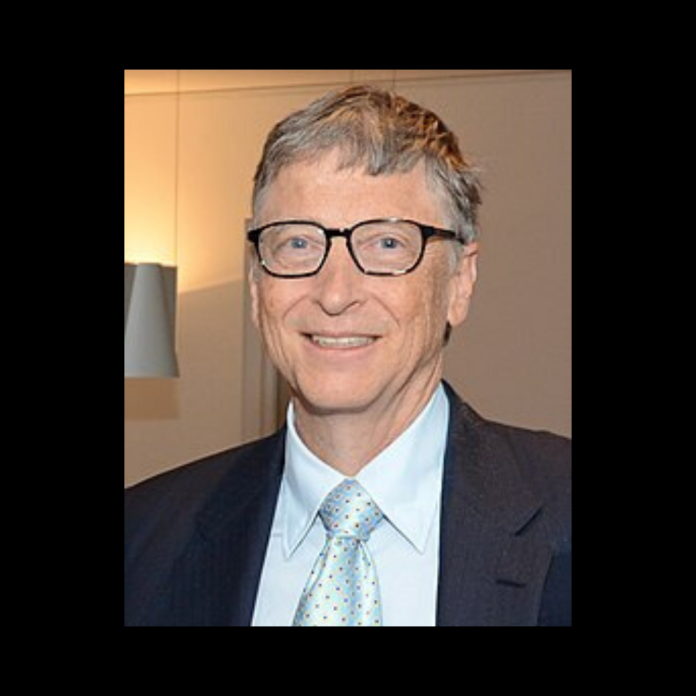
On Friday 13 March 2020, Bill Gates declared that he would be stepping down from the board of Microsoft and from the board of Berkshire Hathaway to dedicate more time to his philanthropic activities. What more can one expect from a man who has pledged 95% of his fortune to charity? Everyone knows Bill Gates as the man behind Microsoft Corporation, the Company with a market capitalization of USD 1.28 trillion and the third-largest in the world after Apple and Alphabet Inc. He is not only a Micro leader but is also a major philanthropist.
William Henry Gates III, born in Seattle, Washington, USA, on October 28, 1955, is the founder of Microsoft Corporation and the Bill & Melinda Gates Foundation. Also known as the biggest risk-taker who dropped out of Harvard when studying law in 1975 to build Microsoft with his friend Paul Allen, and again, who stepped down from the role of Chairman at Microsoft Corporation in February 2014, to work full time at the Bill & Melinda Gates Foundation.
Gates the entrepreneur and businessman in his 1995 bestseller, The Road Ahead, said, “Success is a lousy teacher. It seduces smart people into thinking they can’t lose”. Having said that, he has not let success cloud his efforts.
Bill grew up in a prominent American family with two sisters Kristianne and Libby. His father William H. Gates Sr. was a lawyer while his mother Mary served on the Boards of First Interstate Bank (founded by her grandfather), the United Way, and International Business Machines (IBM).

At 13 his parents enrolled him at Seattle’s elite Lakeside School. There he became interested in what all a computer could do. He wrote his first BASIC computer program that allowed his friends to play against the computer. Bill and his geek friends including Paul G. Allen, also helped to computerize their school’s payroll system and founded Traf-O-Data, a company that sold traffic-counting systems to local governments earning USD 20,000 from the venture. In 1973 he graduated from Lakeside with a score of 1590 out of 1600.
In 1973, Gates enrolled at Harvard University, to pursue law but in 1975 dropped out of college to develop a software for the first microcomputers when Paul Allen showed him an article on the Altair 8800 mini-computer in the ‘Popular Electronics’ magazine. When Paul and Bill contacted MITS to develop their software to run the Altair computer, they were given the opportunity. Written at the Harvard lab, the BASIC software worked perfectly on an Altair computer and later sold to MITS for USD 3,000. This success led to the duo founding Micro-Soft Corporation in 1975. The name Micro-Soft was born by the coming together of ‘micro-computer’ and ‘software’, and the hyphen dropped in 1976 to become what we know as Microsoft Corporation. By 1979, they had employed 25 people for operations, business development, and marketing of Microsoft.
In 1980s, the microcomputer (personal computers/home PCs) industry was emerging. In 1981, Microsoft licensed an operating system called MS-DOS to IBM at USD 50,000 for use on their first microcomputer IMB PC. IBM soon wanted to buy the source code from Microsoft but Bill did not agree to transfer the copyright to IBM. By the early 1990’s Microsoft had sold more than 100 million copies of MS-DOS. Bill Gates with his acumen for business along with his software development skills never failed to review and often rewrite the codes when required.
As the business grew, Bill Gates amassed a fortune
From 1981, Microsoft started to grow. From 25 employees to 128, and from a revenue of USD 2.5 million to USD 16 million. In 1983, they set up their first overseas offices in Great Britain and Japan. Further, in 1985 Microsoft launched Windows and in 1989, it introduced Microsoft Office. With the increasing emergence of the internet, Microsoft developed and launched in August 1995 their winner Windows 95, an operating system that is installed in almost 90% of the world’s computers today. The rest is history.

But like all businesses, in the 1990s Microsoft too had its share of issues. Microsoft was questioned by the Federal Trade Commission and the US Justice Department on the company’s monopoly and unfair marketing practices. It also went to court when Apple sued them for creating a software similar to Apple’s Macintosh. Gates managed to weather the storm and emerged as the winner.

There is light at the end of every tunnel
Bill Gates has been a recipient of several awards and recognitions:
– National Medal of Technology and Innovation, 1992
– Distinguished Fellow of the British Computer Society Award, 1994
– Honorary Knight Commander of the Order of the British Empire (KBE) by Queen Elizabeth II, 2005
– Placard of the Order of the Aztec Eagle, 2006
– Silver Buffalo Award, 2010
– Bower Award of Leadership, 2010
– Padma Bhushan, India’s third-highest civilian award for social work in India, 2015
– Presidential Medal of Freedom by Barack Obama, 2016
– Commander of the Legion of Honour for charity in France by François Hollande, 2016
– Advisory Board Member of the Bloomberg New Economy Forum, 2019
– Honorary doctorates from Nyenrode Business Universiteit (2003), KTH Royal Institute of Technology (2002), Waseda University (2005), Tsinghua University (2007), Harvard University (2007), the Karolinska Institute (2007), and Cambridge University (2009).
Fortunes to Foundations
In 1987, Bill Gates was listed by Forbes magazine amongst the 400 richest people in American worth USD 1.25 billion. In 1995, Forbes named Bill Gates as the richest man in the World, the position which he maintained in the years 1996, 1998-2007, 2009, 2014 and 2017.
Fortunes gave birth to notable Foundations: –
– 1994: The William H. Gates Foundation to fund global health programs
(In 1999, renamed as Bill & Melinda Gates Foundation)
– 1994: Gates Library Foundation to fund North American libraries
(In 1999, renamed Gates Learning Foundation)
The Bill & Melinda Gates Foundation organized into four program areas: Global Development Division, Global Health Division, United States Division, and Global Policy & Advocacy Division address various social concerns.

Guided by the belief that every life has equal value, Bill and his wife Melinda, continue their benevolent efforts to help people lead healthy and productive lives in 45 countries.
